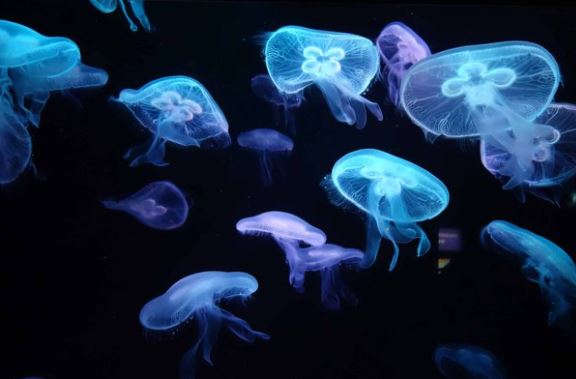
It’s difficult for humans, as conscious beings, to imagine life without a brain.
For us, the brain is crucial, so much so that individuals declared brain dead are often considered deceased by medical standards.
However, there are creatures whose bodies function without a brain. Here’s a list of eight such animals…
1. Sponges
Sponges, the basic building blocks of all animals, possess a simple structure. Instead of organs, they consist of tiny pores or channels that allow water to pass through. Within them lies a squishy mass sandwiched between thin cell layers, enabling them to filter food from water for sustenance. However, they lack a regulatory center to oversee bodily functions.
2. Jellyfish
Jellyfish, with their decentralized nerve net, exhibit basic sensory perception and responses. Although lacking a centralized brain, they navigate the ocean with tentacles, utilizing them to capture prey. Their jelly-like bodies set them apart from mammals, yet they manage movement and survival without a traditional brain or heart.
3. Sea stars (Starfish)
With a decentralised nervous system featuring a ring around their mouth and radial nerves extending into each arm, sea stars lack a true brain despite their anatomical complexity.
4. Sea anemones
5. Flatworms (Platyhelminthes)
Flatworms boast a simple nervous system comprising nerve cords and ganglia but lack a centralized brain. Found in various environments worldwide, they exist in both free-living and parasitic forms.
6. Hydras
These small freshwater organisms, resembling floating tubes with multiple tentacles, belong to the Cnidaria genus. Despite possessing a nerve network, they operate without a centralized brain, relying on instinctual responses to environmental stimuli.
7. Cnidarians
Like jellyfish, Cnidarians, including corals, sea anemones, and hydras, lack a centralized brain. Their decentralized nervous system aids in sensing and reacting to their surroundings, demonstrating the diversity of life without a central regulatory organ.




